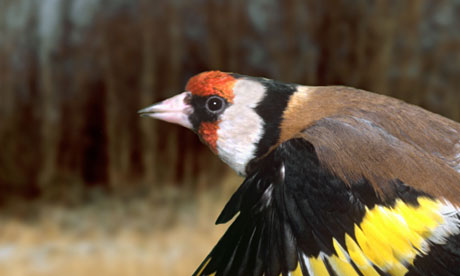
When Brian Aldiss announced that Finches of Mars will be his last science-fiction novel you could almost hear the gasp that passed around the genre community. He has been a major figure in world SF for so long it will be strange not having him around. Of course he is approaching 90, and perhaps feels he has earned a rest. Since turning 80 he has published four novels, two volumes of poetry and a collection of short stories. In September 2012 he set about writing a short story every day for a month. It's a work rate many a younger author might envy.
So what sort of a swan song does Finches of Mars represent? The short answer is: an odd one, although the oddness isn't immediately obvious from its premise, that familiar SF trope of Martian colonisation. In the novel's near-future, six huge towers have been built on the surface of Mars to house Chinese, Western, "Russ-Eastern" "Singa-Thai", "Scand" and "Sud-Am" colonies. Meanwhile Earth is disintegrating into conflict and collapse. "War on earth is continuous," one character notes. "It rumbles from one area to another, like a thunderstorm." Perhaps Mars is a better bet. But there's a problem: settlers' babies are all being stillborn.
Mars has, in a rather random pairing, banned the importation from Earth of religion and pets. Despite this latter interdiction a population of finches has been smuggled in, hence the novel's title. It's a nod, of course, towards Darwin, and The Origin of Species is quoted as an epigraph; clearly the book is about evolution. The inability of settlers to have children represents a generational blockage in the life-force. Indeed, what is strongest about the novel is its meditation on humanity's potential for breaking out of its chrysalis to become something cosmically new.
Some of this speculation is thought-provoking, but sometimes Aldiss's wisdom crosses the line into mere deepitude. "Supposing the universe has a meaning," the narrator ponders early in the novel. "Does that give human life meaning? What if 'meaning' itself holds no 'meaning'?" Um.
In other words, Finches of Mars is an uneven novel. Some of it is stimulating. Some of it is actively bad. Aldiss's portrait of Martian life suffers from what we might call "Post-Kim Stanley Robinson Syndrome". Robinson's Mars trilogy (1993-96) mapped out a future colonisation of Mars so detailed and convincing that later fictionalisations covering the same territory almost inevitably feel thin. Not that Aldiss is going for documentary verisimilitude here. The sensibility at work is more discursive, literary, even symbolist. At its best the writing is lit by flashes of genuinely haunting oddness – a Martian astronaut haunted by his absent (still living) wife; an Earthbound French bishop's midnight chat with a talking horse; centuries-old Martian settlers encountering a bizarre UFO.
The bad bits, though, are hard to salvage. Tap the future Aldiss describes and it simply doesn't ring true: Earth politics is a melange of improbable political flashpoints ("Russos from Greenland have occupied Newfoundland!" "Hungary, Slovakia and Bulgaria are at war!"). The Martian colonisation programme has been organised and funded not by nation-states, but by a consortium of universities. Speaking as someone who works in a university I find this unlikely.
Life is discovered on Mars in the shape of fish-lizard creatures called therapsids, although it is not plain how these beasts are able to subsist without any larger ecosystem. Footnotes explain the meaning of such arcane acronyms as "QED" and "QPR". Some not-very-good poetry is thrown into the mix ("hold tight to your genitals in sleep!") alongside excerpts from imaginary textbooks and lectures that characters unload upon one another without mercy. Quite a lot is made of Samuel Johnson's Rasselas and a 12th-century saint's life, Christina of Markyate – a character literally pisses herself with excitement reading this latter – but I didn't see how these two references points fitted the larger pattern. More worryingly, the novel voices a number of unpleasant generalisations about Muslims, variously characterised as intolerant, misogynistic and fanatical. If the point at such moments is to satirise the prejudices of its characters rather than just vent the grumpiness of its author, the novel has more work to do.
Still, though flawed, there's enough of the echt Aldiss tang in Finches to remind fans of his glory days; and I was sorry to think there wouldn't be any more of his work to read. But then, going on to his website after drafting this review I discovered he has now written a new short novel, All the Planets of the Zodiac (a sequel to the "Super-Toys Last All Summer Long" story that Spielberg adapted into the movie AI, no less). Whatever else Aldiss may be, predictable he is not.
• Adam Roberts's novel Jack Glass is published by Gollancz

